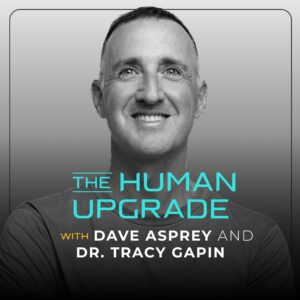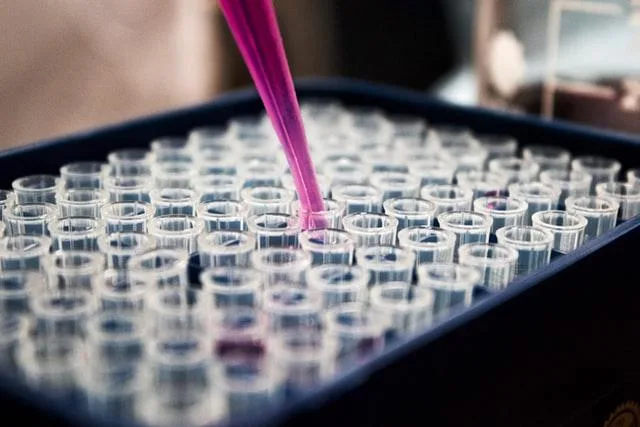
Scientists are rapidly working and collaborating to find treatments for COVID-19. Melatonin may be one of them.
With the latest statistics suggesting that Coronavirus Disease 19 (COVID-19) we have reached over 16 million cases globally, with over 645,000 deaths, we’re in the middle of the most serious pandemic in generations.
Unprecedented collaboration by teams of scientists around the world have been very effective in providing rapid information about the virus and has led to several teams closing in on a vaccine. Still, many governments have struggled to slow down the spread of the virus and reduce the death rate.
In their eagerness to propose a cure, some governments have advocated the use of the malaria medications Chloroquine and Hydroxychloroquine for use against COVID-19.
But the evidence for its effectiveness is very limited. A recent article published in Nature concluding that “chloroquine targets a pathway for viral activation that is … unlikely to protect against SARS-CoV-2.” Its lack of effectiveness, coupled with the relatively serious side effects, makes Chloroquine a poor treatment choice.
And while various teams seem increasingly closer to a vaccine, nothing is available for the public yet.
But not all hope is lost.
Recently there has been significant research into possible alternative treatments, and scientists may have landed on a safe, common, and pre-existing medication: Melatonin.
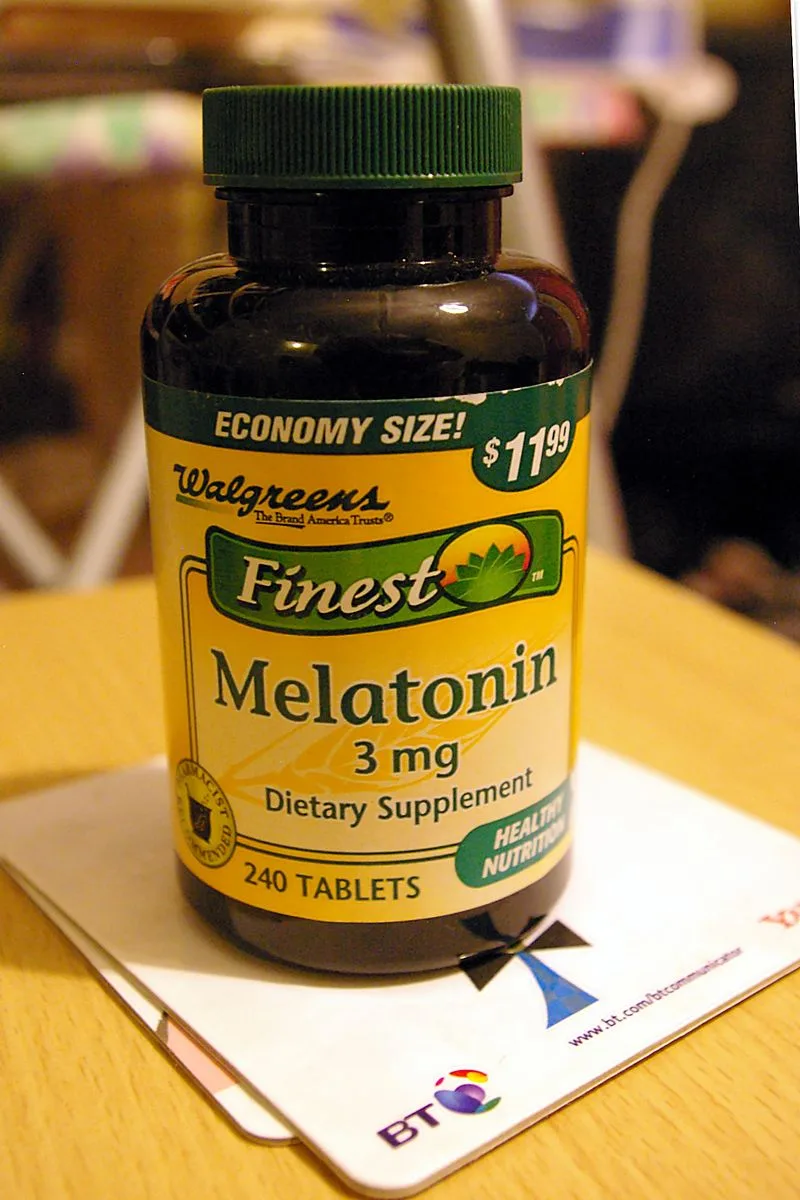
So what is melatonin? Could melatonin be a powerful new weapon in the fight against COVID-19? Here’s what we know so far.
What is Melatonin?
Melatonin is a hormone that we produce naturally in our bodies. It has a number of important functions but is largely responsible for regulating our sleep cycles.
(Don’t get “melatonin” confused with “melanin”, the substance in our skin responsible for its color. They’re not the same thing!)
If you’re feeling like you’re familiar with the name “melatonin”, it’s probably because you’ve heard of melatonin as a treatment for sleep issues and sleep disorders. Melatonin is a very common and effective treatment and widely available at grocery stores and pharmacies as a dietary supplement.
It’s also very safe. Several large-scale reviews and years of research of melatonin suggest it has relatively few minor side effects. Some of those may include headaches, dizziness, and drowsiness.
Overall, it’s considered a well-tolerated and safe medication.
Can Melatonin be used against COVID-19?
The exciting news is that there have now been several studies that provide some evidence that melatonin could be useful to inhibit harm from COVID-19.
What COVID-19 does
To understand how it works, we have to go a bit into the deeper picture.
When a person gets infected by COVID-19, it creates a “cytokine storm”, in which increased production of cytokines leads to a state of increased inflammation. This inflammatory response is what causes the symptoms we’re familiar with: fever, shortness of breath, multiorgan failure, and death.
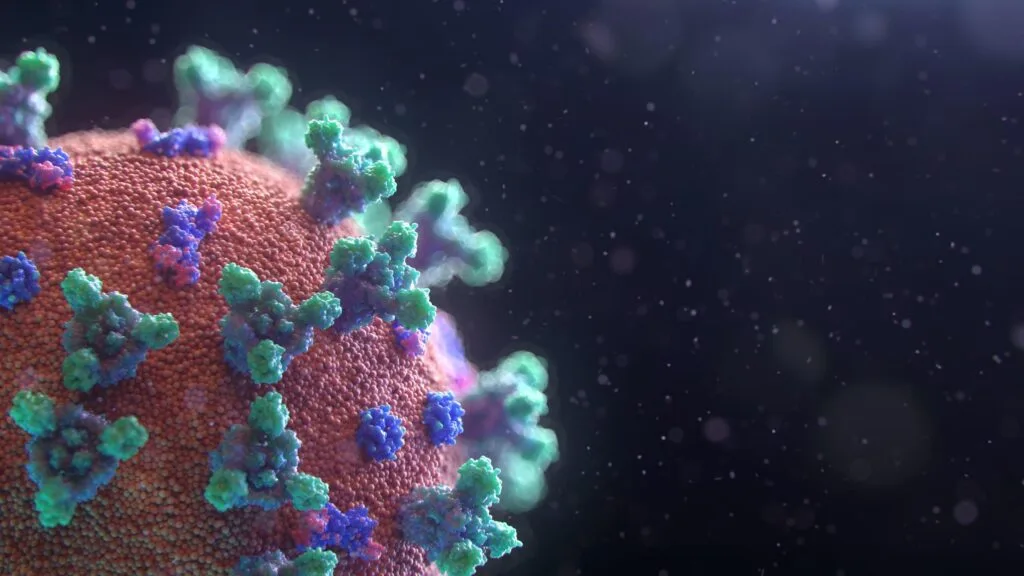
How Melatonin could help
Melatonin may help reduce this reaction caused by COVID-19.
It turns out that melatonin is a potent antioxidant and anti-inflammatory agent. That means it can help neutralize the “cytokine storm” that COVID-19 produces, thereby helping to mitigate cell damage, protect lung tissue, and ultimately reduce systemic symptoms.
While much of our melatonin is created by the pineal gland, there is actually a significant amount produced in most of the cells in our body. However, when those cells are infected by COVID-19, they aren’t able to produce melatonin as easily.
Scientists suggest that, by taking melatonin, we can reduce the inflammation caused by this “cytokine storm”, and help reduce the severity of the infection that COVID-19 causes. This would help reduce some of the negative effects of COVID-19, and hopefully, keep people alive.
Melatonin is not a COVID cure … but it could manage symptoms
It’s important to note that melatonin is not being considered as a cure for COVID-19; – it wouldn’t kill the virus and it’s not a vaccine.
But what melatonin can do is reduce the damage from COVID-19 and help manage the symptoms.
By doing that, it might be able to keep people alive and stop them from getting really sick.
More evidence needed
So far the evidence looks promising. I’m aware of at least 5 studies in the past few months that suggest melatonin is a possible treatment for COVID-19 symptoms and help reduce the death rate (check them all out to learn more).
But scientists are cautious by nature. They like to have a large body of evidence before they make bold claims. While there have been some promising early findings, we still need large studies to see how effective it could be, what the right doses might be, and so on.
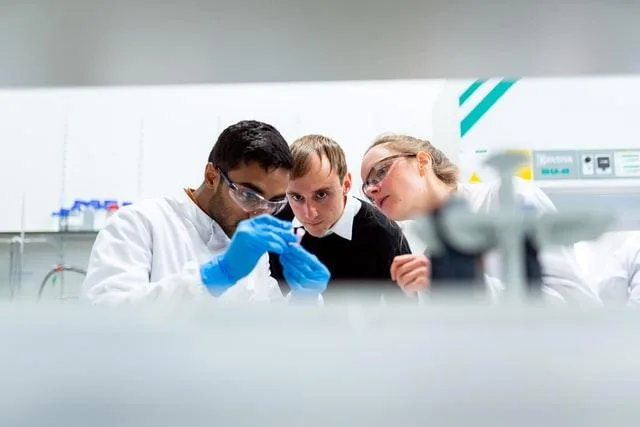
Scientists are working hard and collaborating to find effective COVID-19 treatments.
So more evidence is needed.
Still, with all the bad news about COVID out there, and with a rising death toll, this is some good news. We’re all looking for ways to protect ourselves from COVID-19. A promising treatment is welcome.
As we wait for more news, make sure you wear a mask when you’re in public and stay safe.
References
- Ferner, R. E., & Aronson, J. K. (2020). Chloroquine and hydroxychloroquine in covid-19. BMJ 2020, 369, m1432.
- Hoffmann, M., Mösbauer, K., Hofmann-Winkler, H., Kaul, A., Kleine-Weber, H., Krüger, N., … & Pöhlmann, S. (2020). Chloroquine does not inhibit infection of human lung cells with SARS-CoV-2. Nature, 1-5. https://doi.org/10.1038/s41586-020-2575-3
- Buscemi, N., Vandermeer, B., Hooton, N., Pandya, R., Tjosvold, L., Hartling, L., … & Baker, G. (2006). Efficacy and safety of exogenous melatonin for secondary sleep disorders and sleep disorders accompanying sleep restriction: Meta-analysis. BMJ, 332(7538), 385-393. https://doi.org/10.1136/bmj.38731.532766.F6
- Buscemi, N., Vandermeer, B., Hooton, N., Pandya, R., Tjosvold, L., Hartling, L., … & Vohra, S. (2005). The efficacy and safety of exogenous melatonin for primary sleep disorders a meta-analysis. Journal of General Internal Medicine, 20(12), 1151-1158. https://doi.org/10.1111/j.1525-1497.2005.0243.x
- Li, T., Jiang, S., Han, M., Yang, Z., Lv, J., Deng, C., … & Yang, Y. (2019). Exogenous melatonin as a treatment for secondary sleep disorders: A systematic review and meta-analysis. Frontiers in neuroendocrinology, 52, 22-28. https://doi.org/10.1016/j.yfrne.2018.06.004
- Reiter, R. J., Sharma, R., Ma, Q., Dominquez-Rodriguez, A., Marik, P. E., & Abreu-Gonzalez, P. (2020). Melatonin Inhibits COVID-19-induced Cytokine Storm by Reversing Aerobic Glycolysis in Immune Cells: A Mechanistic Analysis. Medicine in Drug Discovery, 6, 100044. https://dx.doi.org/10.1016%2Fj.medidd.2020.100044
- Zhang, R., Wang, X., Ni, L., Di, X., Ma, B., Niu, S., … & Reiter, R. J. (2020). COVID-19: Melatonin as a potential adjuvant treatment. Life Sciences, 250, 117583. https://dx.doi.org/10.1016%2Fj.lfs.2020.117583
- Castillo, R. R., Quizon, G. R. A., Juco, M. J. M., Roman, A. D. E., de Leon, D. G., Punzalan, F. E. R., … & Reiter, R. J. (2020). Melatonin as adjuvant treatment for coronavirus disease 2019 pneumonia patients requiring hospitalization (MAC-19 PRO): a case series. Melatonin Research, 3(3), 297-310. https://doi.org/10.32794/mr11250063
- Zhou, Y., Hou, Y., Shen, J., Huang, Y., Martin, W., & Cheng, F. (2020). Network-based drug repurposing for novel coronavirus 2019-nCoV/SARS-CoV-2. Cell Discovery, 6(1), 1-18. https://dx.doi.org/10.1038%2Fs41421-020-0153-3
- Tan, D. X., & Hardeland, R. (2020). Potential utility of melatonin in deadly infectious diseases related to the overreaction of innate immune response and destructive inflammation: focus on COVID-19. Melatonin Research, 3(1), 120-143. https://doi.org/10.32794/mr11250052



